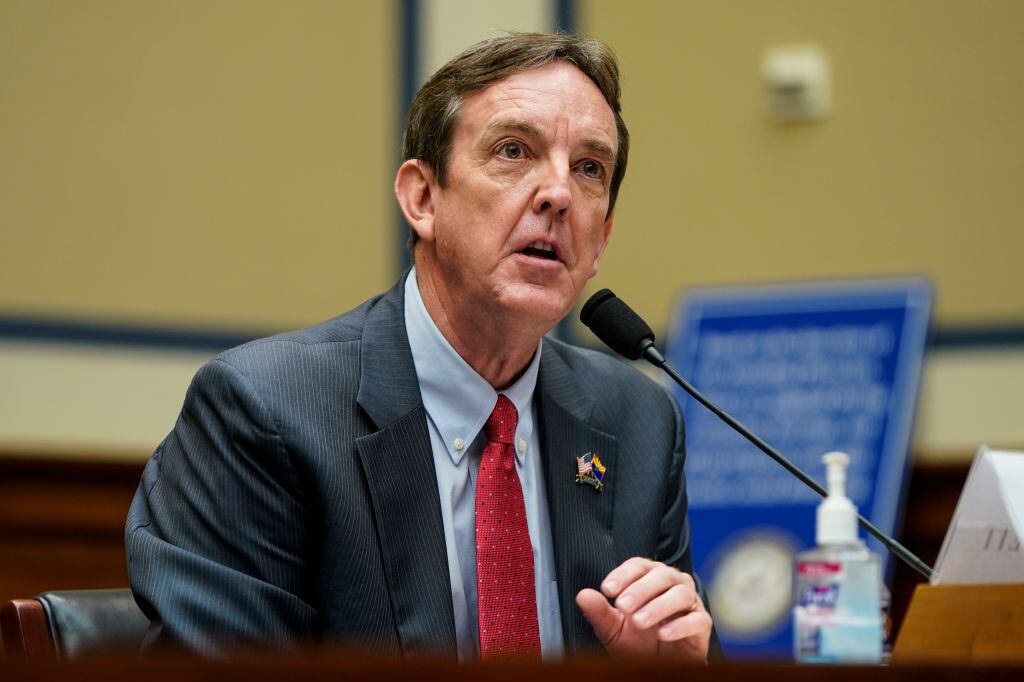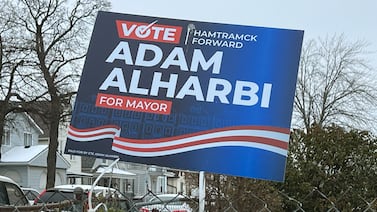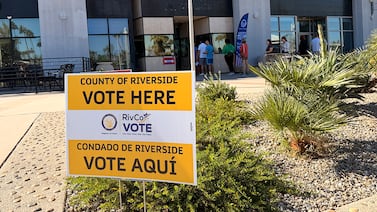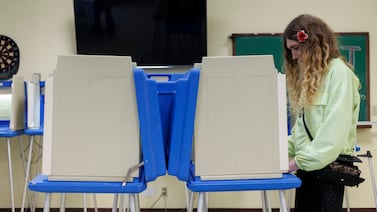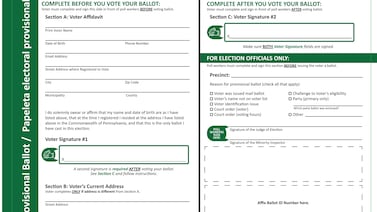Votebeat is a nonprofit news organization reporting on voting access and election administration across the U.S. A version of this post was originally distributed in Votebeat’s weekly newsletter.
When it comes to elections, it may be understating things to say that Arizona can be a touch unpredictable.
Recently, Votebeat Arizona’s Jen Fifield wrote about a truly surprising development — an attempt to win bipartisan support for election legislation.
That’s right — Arizona, home to a divided government where recent news stories have featured candidates refusing to accept election results, local officials declining to certify elections until ordered by a court, and a smorgasbord of partisan mudslinging, is discussing bipartisan legislation. The details of what it is (almost) matter less than the bipartisan part.
It’s well established that, in Arizona and around the country, questions of election law and election administration have become increasingly partisan, especially since the 2020 election. That’s why bipartisan efforts are worth a moment of our time.
The quick version of what’s happening: A state senator, Ken Bennett, who is also a former secretary of state and a Republican, is trying to build support for a bill that would require the public release of a digital image of each individual ballot, along with additional information that would allow those concerned about accurate election results to conduct a sort of Do-It-Yourself audit. The transparency and ability to verify results will reassure the public, Bennett argues.
At least some Democrats say they like the idea, though they’re wary of providing more ammunition to conspiracy theorists. Such ballot images are already available in some states, including some governed by Democrats. The fate of the proposal in Arizona is yet to be determined, but people are talking — even, in some cases, people who don’t often consider a bipartisan proposal.
That’s ultimately the news here -— that people are talking. It feels like an unexpected respite, even though it’s still true that our leaders aren’t having constructive conversations about any number of necessary election issues. Could this be a signal of … something? A crocus hinting of spring?
Once you start looking for bipartisan efforts, there are others. The Associated Press recently reported on a bipartisan movement across states to restore the voting rights of those convicted of felonies. For example, rights-restoration legislation recently signed into law in Minnesota received some bipartisan support. In Pennsylvania, observers are anticipating a legislative package on elections that could win bipartisan support, though details of one haven’t yet emerged publicly.
Going back further, in 2021, Republican state lawmakers and a Democratic governor negotiated a fraught path to passage of a bipartisan overhaul of Kentucky’s election laws and have since responded to many interested parties asking how they managed that. And on the federal level, Congress last year updated the Electoral Count Act, a dusty, moldy statute whose faults came into sharp relief after the 2020 election.
The Bipartisan Policy Center’s Matthew Weil and Sarah Walker reeled off a short list of other examples, including the expansion of early voting access, ballot curing, and ballot tracking in multiple states. “Obviously, the Bipartisan Policy Center doesn’t think that it’s crazy to think bipartisanship can work,” Weil pointed out, adding what, for him, is something of a refrain: “Election policy is more durable if it’s bipartisan.”
Weil and Walker noted that sometimes, the election issues that get bipartisan support aren’t the ones that get the most attention. In other words, Walker said, there’s room for compromise — but maybe not on what she described as “the flashy items” that engage the vast majority of the public.
Back Then
And you thought 2016 was a bad year for political forecasting! In 1860, Broughton’s Monthly Planet Reader and Astrological Journal published the astrological charts of all four presidential candidates: In June, Constitutional Union candidate John Bell; in August, Northern Democratic candidate Stephen Douglas; in September, Republican candidate Abraham Lincoln; and in October, Southern Democratic candidate John Breckinridge. Using the charts, the author predicted that Douglas was most likely to become president. Lincoln, he wrote, was “very much esteemed among the poorer classes of people” but was ultimately unlikely to prevail, as he had “rather unfortunate” astrological characteristics. Among them: “his mental abilities are not of the highest order.”
New From Votebeat
From Votebeat Arizona: A bill to enable do-it-yourself election audits sparks rare bipartian interest in Arizona.
From Votebeat Michigan: Before canceling 100,000 voter registrations, Michigan officials call on community groups and clerks to double-check their lists
From Votebeat Texas: Texas Senate passes bill to make illegal voting a felony again
In Other Voting News
- Ohio on Friday became the latest state to announce its withdrawal from a multistate coalition states use to clean voter rolls. Secretary of State Frank LaRose’s decision came after the board of the Electronic Registration Information Center, or ERIC, on Friday decided against a series of changes to the group’s requirements and governance LaRose said would make the organization less partisan. Five other Republican-led states — Louisiana, Alabama, West Virginia, Florida, and Missouri — had already withdrawn. The disputes also led David Becker, who helped create ERIC, to decline renomination to his board position as a non-voting member. Supporters of the organization, including some Republican secretaries of state, say it is a powerful tool for keeping voter rolls updated and battling voter fraud, and there is no viable alternative. ERIC has been the subject of baseless far-right conspiracy theories for more than a year, and other states, including Texas, have legislation pending that could require them to withdraw.
- A new Republican majority on the North Carolina Supreme Court appears inclined to overturn an earlier ruling on redistricting, a change in direction that would leave the GOP with the power to draw more favorable political maps, Politico reported. The court is also reconsidering a recent decision on voter identification requirements. Both cases were narrowly decided, with Democratic justices in the majority, before Republicans flipped two seats in the 2022 election, the Wall Street Journal reported.
- Our partners at the Texas Tribune have a stunning story about a justice of the peace in Texas who was thrice caught up in Attorney General Ken Paxton’s election crime investigation until judges intervened. He hadn’t, it turns out, committed any crimes.
- In other Texas news: Jane Nelson was confirmed by the state’s Senate as secretary of state, a victory for Texas Gov. Greg Abbott, whose last three nominees failed to win confirmation.
- Wyoming Secretary of State Chuck Gray — a noted election conspiracy theorist — has removed a section of election security facts and FAQs from his website, reports WyoFile. They were placed there by his predecessor, Ed Buchanan, and aimed at unraveling “the various myths about the insufficiencies and inaccuracies in Wyoming’s election process.” The page is archived here.
- As counties and states grapple with how to protect students in the age of mass shootings, many are banning the use of schools as polling places. A bill in Idaho would allow for remote learning or giving students the day off.
- The city of Honolulu, Hawaii, has banned guns in “sensitive places,” a list that includes polling places. The mayor is likely to sign the bill.
Carrie Levine is Votebeat’s story editor and is based in Washington, D.C. She edits and frequently writes Votebeat’s national newsletter. Contact Carrie at clevine@votebeat.org.

